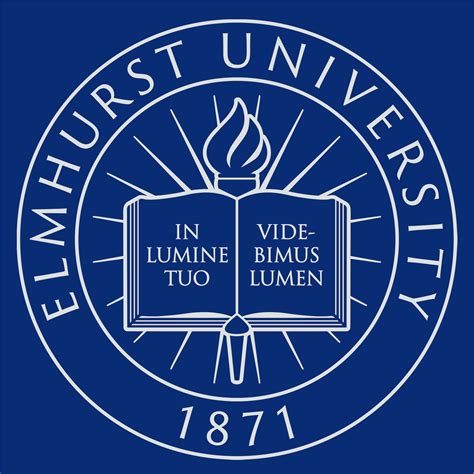Navigating the complex world of college financing can be daunting, but understanding Elmhurst University’s financial aid offerings is crucial in making informed decisions about your education. This comprehensive guide will delve into the eligibility criteria, types of aid available, deadlines, and more, empowering you to maximize your financial assistance and achieve your academic aspirations.

Types of Financial Aid at Elmhurst University
Elmhurst University’s financial aid packages typically comprise a combination of the following types of aid:
- Scholarships: Merit-based awards that recognize academic excellence, leadership, or other achievements.
- Grants: Need-based awards that do not require repayment.
- Loans: Money borrowed from the federal government or private lenders that must be repaid with interest.
- Work-Study: On-campus employment opportunities that allow students to earn money to cover educational expenses.
Eligibility Requirements
To be eligible for financial aid at Elmhurst University, students must:
- Be enrolled at least half-time (six credit hours per semester) in an eligible degree program.
- Have a valid Social Security number or be a permanent resident.
- Demonstrate financial need by submitting the Free Application for Federal Student Aid (FAFSA).
- Maintain satisfactory academic progress.
Deadlines and Submission Process
To receive priority consideration for financial aid, students are encouraged to submit the FAFSA by March 1st. The FAFSA can be accessed at fafsa.gov. The university’s Financial Aid Office will contact students with individualized award packages after reviewing the FAFSA information.
Types of Scholarships
Elmhurst University offers a wide range of scholarships to recognize and reward deserving students. These include:
- Academic Scholarships: Based on high school GPA, SAT/ACT scores, and class rank.
- Talent Scholarships: Based on artistic or athletic abilities.
- Endowed Scholarships: Established by generous donors to support students from specific backgrounds or interests.
- Transfer Scholarships: Available to students transferring from other institutions.
Benefits of Financial Aid
Securing financial aid not only makes college more affordable, but also provides numerous benefits:
- Reduced financial burden: Aid reduces the out-of-pocket expenses for tuition, fees, and living costs.
- Increased access to higher education: Aid makes it possible for more students to pursue their academic goals.
- Improved academic performance: Studies have shown that students with financial aid are more likely to graduate and earn higher grades.
- Personal growth and development: Work-Study programs provide opportunities for students to develop valuable skills and experience.
Common Mistakes to Avoid
To avoid potential pitfalls in the financial aid process, students should:
- Apply on time: Meet the FAFSA deadline to prioritize consideration for aid.
- Be accurate: Provide complete and accurate information on the FAFSA to ensure correct calculations.
- Compare award packages: Review offers from multiple schools to find the best fit.
- Understand loan terms: Carefully consider the interest rates, repayment schedules, and potential consequences of taking on debt.
Conclusion
Elmhurst University’s financial aid programs are designed to support students in achieving their educational dreams. By understanding the types of aid available, eligibility requirements, and deadlines, students can maximize their assistance and minimize the financial burden of college. Remember to apply early, submit accurate information, and carefully consider loan terms to make informed decisions about your financial aid package.
